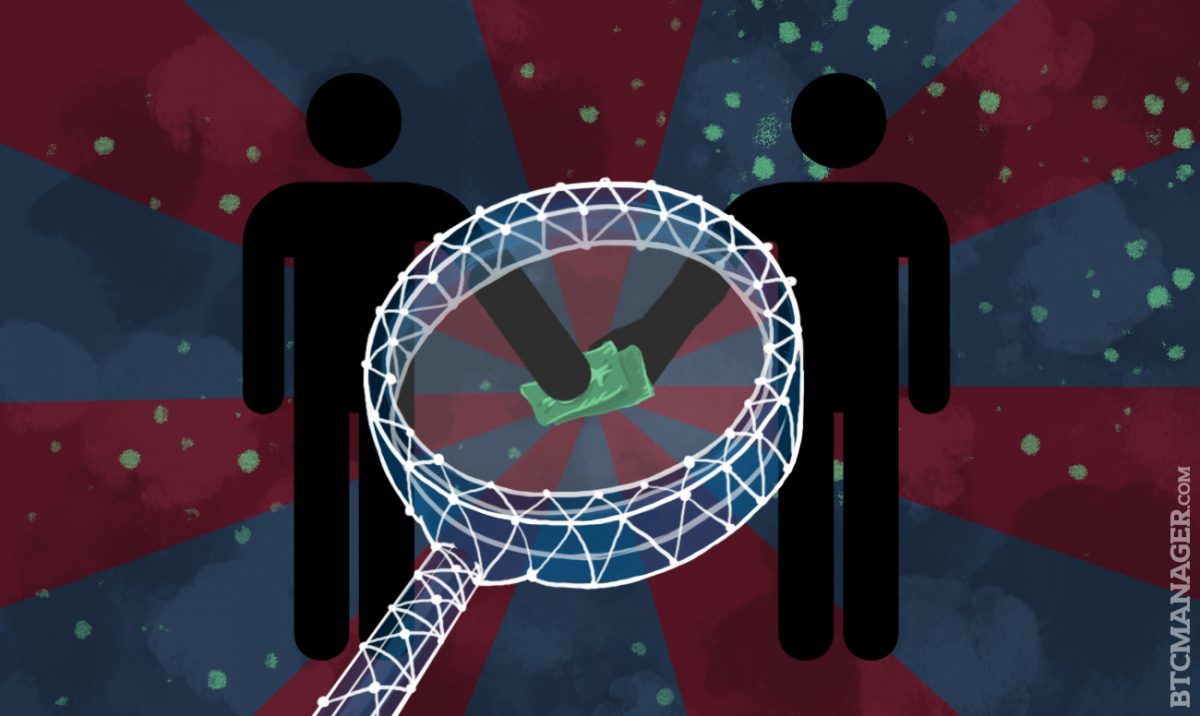Will The Blockchain Kill Corruption In The Developing World?

Since the Blockchain technology first appeared with the launch of the digital currency bitcoin in 2009, it has has been hailed to become as revolutionary and impactful on society as the Internet. This decentralized, open-source ledger software can be augmented to create a range of highly applicable functions ranging from transparent financial transactions and ‘smart contracts’ to voting systems and proof of ownership.
The financial industry, for example, is highly interested in Blockchain technology as it could be used to cut costs and prevent fraudulent transactions. Many experts in the financial sector believe that the Blockchain technology will be used to handle the settlement and clearing of financial securities and therefore drastically reduce back-office administration costs for large banks.
However, the Blockchain can not only improve efficiency, transparency, and reduce fraud in the corporate world. It also has the potential to eliminate corruption, especially in developing parts of the world where corruption often runs rampant.
What is the Blockchain?
The Blockchain is the decentralized public ledger technology that the cryptocurrency bitcoin is running on. It is a secure and transparent peer-to-peer network that records all bitcoin transactions in real time.
However, due to the open source nature of the Blockchain, developers can augment the Blockchain technology so that its application becomes much broader and thereby enabling it to be used to create any sort of distributed ledger structure that requires a consensus mechanism to validate a transaction. An example of that would be Ethereum’s blockchain, which has been built to develop ‘smart contracts’, which may soon be used in the financial services industry as a consortium of banks is currently trialing this technology for its potential use in financial services.
How could the Blockchain be used to combat corruption in the developing world?
The Blockchain could be used in various ways to fight corruption in developing countries. Firstly, through the use of smart contracts and, secondly, through the use of the Blockchains open ledger technology to trace every single financial transaction. The latter could be particularly useful when it comes to the misappropriation of Foreign Direct Investment, loans by development agencies and charitable funds. It could even be used to transparently track government spending.
Smart contracts
Through the use of ‘smart contracts’, which are irrefutable Blockchain-based digital contracts, citizens could receive access to land titles, secure their rights to vote and even have access to a legal identity, which is often not the case for those living in low-income rural areas.
Furthermore, the Blockchain technology could be used to count votes and ensure truly fair elections, as each vote would be recorded on a publicly accessible ledger. This could be a huge step forward for democracy in the parts of the world that still suffer from quasi-dictatorships.
Transparent financial transactions
International companies that provide Foreign Direct Investment to developing countries could implement a Blockchain that would track exactly where each dollar spent goes. This would also be incredibly valuable to development organizations, such as the World Bank, to track exactly what their loans are being spent on once funds are within the borrowing countries’ borders.
Unfortunately, in many developing countries corruption starts at the top and it is greedy politicians who like to ‘skim off the top’ when handling public finances. The same goes for those running corporations and engaging in business with foreign investors. A functioning public ledger, or even a private ledger in some cases, could sharply reduce if not entirely eliminate corruption in these areas.
For example, the Blockchain technology could be implemented by NGOs and other charitable organizations to entirely eliminate the misappropriation of funds by keeping a public ledger of all financial transactions involved in their charitable activities. When it comes to ensuring charitable donations reach the correct recipients, there is already a start-up working on a solution.
This start-up is called BitGive. US-based BitGive is about to launch a donation transparency platform that “allows donors and the public to trace non-profit transactions on a public platform in real time to see how funds are spent, ensure they reach their final destination, and track the results generated from contributions.”
BitGive Founder and Executive Director Connie Gallippi believes that providing donors with this information “empowers them to give more.” She says the platform will “reward good actors and set a new standard, thereby raising the tide of the nonprofit sector. Improvements across the sector ultimately result in more and better outcomes from philanthropic contributions worldwide.”
The Blockchain could also be used to track government spending, which would make it substantially harder for politicians to misappropriate funds by funneling public money into their own pockets via private sector contracts. Moreover, politicians in the UK were exposed back in 2009 for using public money for a wide range of things. From not so expensive chocolate bars to more bizarre purchases such as duck houses and extravagant ones such as second residences.
With blockchain technology, this could assure the public that politicians are not squandering taxpayer money. There is clearly a need for it just developing, but also developed, economies. Each expenditure could be recorded on a public ledger, which would mean that politicians would have to stick to their word when they make claims during election campaigns about building more schools and hospitals and investing in public services. The idea of publicly tracking public spending using a Blockchain was actually suggested by London Mayoral candidate George Galloway in early 2016. However, as he was not voted Mayor of London his idea will not be implemented any time soon.
Will the Blockchain entirely eradicate corruption in developing countries?
The answer to that is almost certainly ‘no’. In many parts of the world, bribes have become a common part of business. Even if foreign direct investment, development funding, and charitable donations are being fully accounted for by transparent blockchain ledgers, locally generated contributions to a country’s gross domestic product can still be easily misappropriated if no blockchain is implemented to track a government’s income and expenditures.
Having said that, there is already a start-up in the developing world working to improve democratic through the use of the Blockchain. This start-up is called Democracy Earth and is based in Buenos Aires, Argentina. Democracy Earth’s aim is to “hack democracy” by utilizing Blockchain technology to create online voting systems, identity verification for voter registration and track budgets.
Their open source voting software DemocracyOS was used during the 2013 City Council elections in Buenos Aires, where citizen were able to vote directly on matter relevant to them, which in turn the candidates of a newly formed political party, Partido de la Red, would attempt to raise to legislators. While the party only received 1.3 percent of the votes and did not receive a spot in the City Council, the revolutionary online voting system DemocracyOS received a lot of attention and lead to the formation of the Democracy Earth Foundation, which has since received backing from Y-Combinator. When the party tried to run its second campaign, they were told to bribe a federal judge to do so. By building a new system outside of our current, dysfunctional political arena, Democracy Earth could be a way to return the political system to the people through a combination of direct and representative democracy.
Unfortunately, however, as many different parties profit off of corruption, I believe that it is unlikely that such corruption-reducing Blockchains will be implemented on a large scale in the developing world anytime soon. Therefore, the solution will not come from the ‘top-down’.
Start-ups, such as Democracy Earth and BitGive, are leading the way in fighting corruption in developing countries and blockchain technology will continue to have a massively positive impact in the future. However, the fight against corruption will be fought from the ‘bottom-up’ by grass-roots movements. But in order to win the fight, it requires wide participation to disinfect various institutions, which is likely to be a slow battle.











